
There’s a terrific quote attributed to the famous director, Alejandro González Iñárritu, that perfectly encapsulates the monumental challenge of filmmaking. It goes like this: “To make a film is easy; to make a good film is war. To make a very good film is a miracle.” The more you immerse yourself in the world of movies, the more this profound sentiment resonates and makes undeniable sense.
Indeed, the magic of cinema is often a delicate balance, and even the most remarkably talented individuals can, under certain circumstances, deliver a performance that falls somewhere between mediocre and outright horrible. It’s a fascinating paradox of the industry: sometimes, a group of highly skilled people come together and create a masterpiece, only to reunite a few years later with the same inspiration and motivation, collaborating just as well, and somehow produce a creative and commercial disaster.
This phenomenon isn’t limited to the films themselves; it extends directly to the performances within them. Today, we’re shining a spotlight on those instances – the worst performances by actors widely recognized as giants in their field. While it might initially sound like a harsh critique, being included on a list like this can, in fact, be seen as a genuine compliment. To earn a spot on a compilation of truly bad performances by great actors, one must first be an actor of such caliber that a ‘cruddy’ performance from them feels almost inconceivable.
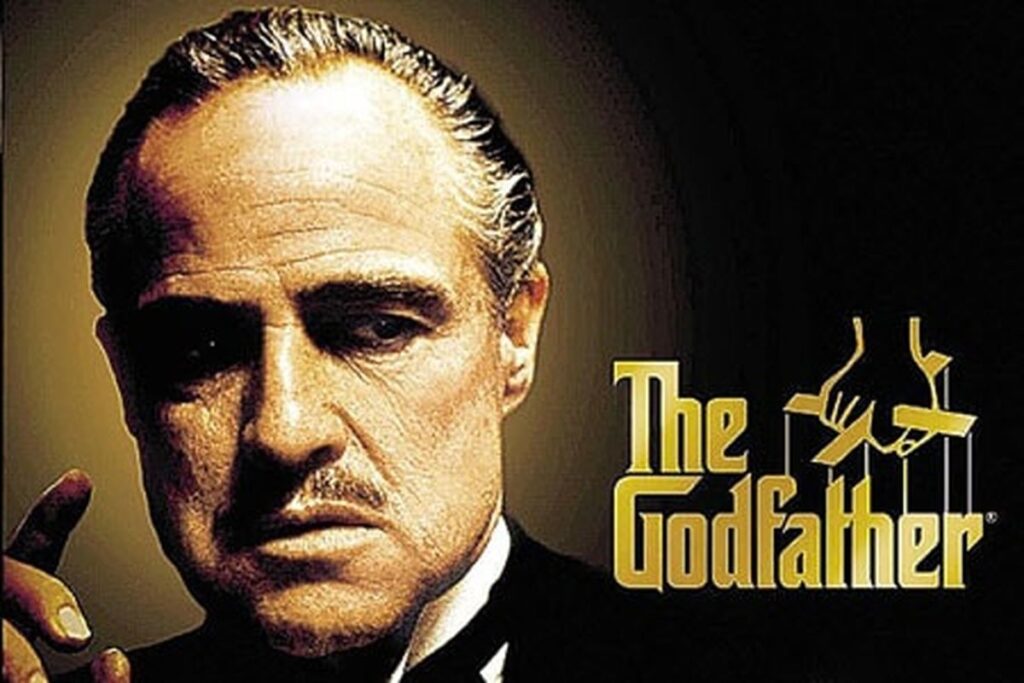
1. **Sofia Coppola in The Godfather Part III (1990)**The final installment of the legendary “Godfather” trilogy is, for many, universally seen as a significant step down from its predecessors, and among its share of flaws, one stands out as particularly glaring: Sofia Coppola’s performance as Mary Corleone. Her inclusion in such a pivotal role, especially given her lack of acting training, immediately set the stage for a difficult reception, a factor compounded by the last-minute circumstances of her casting.
Coppola was a last-minute replacement, stepping in when Winona Ryder unexpectedly dropped out. This sudden pivot meant that a character central to the story was portrayed by someone without the necessary experience, and critics were quick to point out the dissonance. Her delivery, unfortunately, often jarred sharply with the established tone and gravitas of the rest of the film, disrupting the immersive world the previous two entries had so masterfully built.
Her performance has, for decades, served as a prime example of the potential pitfalls and dangers of nepotism in Hollywood. Despite the film being directed by her own father, Francis Ford Coppola, the consensus largely held that her acting was a detriment. This is a powerful lesson in an industry where talent should, ideally, always trump family connections.
However, in a fortunate turn of events for the cinematic landscape, Sofia Coppola eventually channeled her creative energies into directing. The context explicitly notes that “Thankfully, she made a better director than she did an actress,” a testament to her subsequent, highly acclaimed career behind the camera, which has earned her significant recognition and respect.
Read more about: From Cult Classics to Cringe-Fests: Revisiting 15 Unforgettable Acting Performances That Missed the Mark
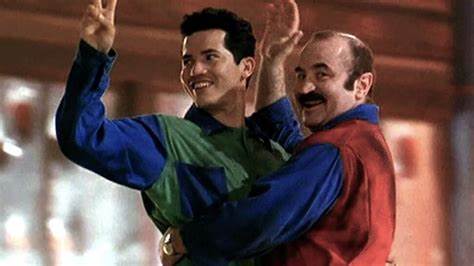
2. **Dennis Hopper in Super Mario Bros. (1993)**Dennis Hopper, a seasoned and respected actor with a career spanning decades and countless iconic roles, found himself in an unexpectedly peculiar predicament with his portrayal of the villainous King Koopa in the 1993 film adaptation of “Super Mario Bros.” His performance is often cited as a prime example of an actor going significantly off-script in terms of tone, resulting in a character that was memorable for all the wrong reasons.
Hopper’s take on Koopa was less grounded villain and more a whirlwind of manic, over-the-top energy, arguably exceeding the inherent goofiness of the overgrown turtle his character was originally based on. He imbued Koopa with all the hallmarks of a maniacal corporate evil, creating a blend that felt like the worst kind of snake – or, in this case, dinosaur – in a suit, often crossed with the theatricality of a character like Dr. Evil.
It’s certainly true that the script for “Super Mario Bros.” presented a considerable challenge, making it difficult for any actor to deliver lines that felt genuinely believable within such a fantastical and often absurd framework. The dialogue written for Koopa was inherently strange, demanding a performance that could navigate its peculiar nature. Yet, Hopper’s specific delivery managed to make it even more so.
The context describes his portrayal as “just so strange and goofy that it can’t be called good.” While it may not have been a critically praised performance, it undeniably retained a certain bizarre entertainment value. He was “still entertaining, but not as intended,” turning what was meant to be a menacing villain into a cult figure of comedic infamy.
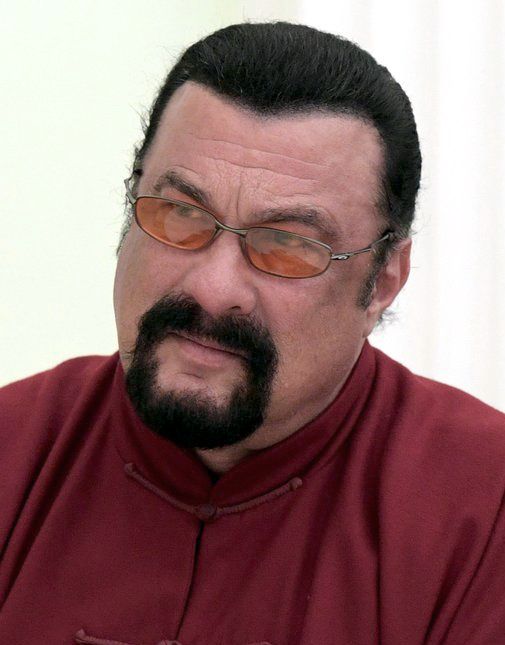
3. **Steven Seagal in Half Past Dead (2002)**When discussing actors whose performances might be considered less than stellar, Steven Seagal often finds himself in a category of his own. His work in the 2002 action flick “Half Past Dead” serves as a stark reminder that even his usual, somewhat limited, acting range could be further diminished by a noticeable lack of effort, resulting in a truly uninspired turn.
Seagal’s established persona is characterized by a stoic demeanor and a whispery vocal delivery, a style that, while not universally celebrated, has become his signature. However, in “Half Past Dead,” his performance was so devoid of engagement that his typical stoicism would have actually been preferable. It was a clear departure from even his usual, predictable rhythm, suggesting a profound disinterest in the role.
Throughout the film, Seagal appeared to simply hurry through his lines, almost as if he were trying to get them over with rather than truly inhabit his character. This hurried delivery contributed to a palpable lack of connection, especially in a movie nominally presented as a buddy film. His chemistry with co-star Ja Rule was described as “very little,” undermining the foundational dynamic essential for such a genre.
Compounding these issues, even Seagal’s signature fight scenes – typically the highlight of his films – felt unenthusiastic and tepid. The action sequences, usually his strong suit, lacked their characteristic punch, further highlighting the overall lack of commitment. It’s a telling indictment when the title “Half Past Dead” could just as easily apply to the seemingly lifeless performance of the movie’s star, making it a truly memorable example of an actor phoning it in.
Read more about: Hollywood’s Infamous Landmines: 14 Films That Absolutely Decimated A-List Careers
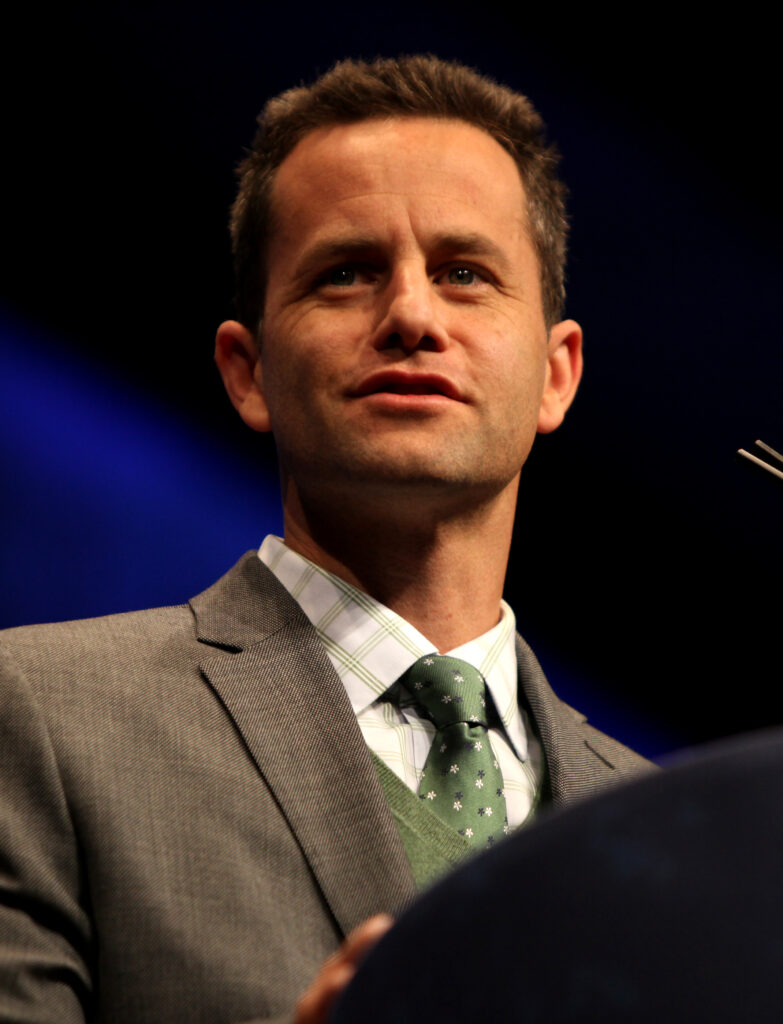
4. **Kirk Cameron in Saving Christmas (2014)**Christian movies, as a genre, have long struggled with critical reception, often being perceived less as genuine entertainment and more as “echo chambers for beliefs.” This observation holds particularly true for “Saving Christmas,” a film starring the outspoken Kirk Cameron, whose performance became a lightning rod for criticism and an unfortunate benchmark for cinematic ineptitude.
Cameron’s acting in “Saving Christmas” was so profoundly panned that the context provocatively states it “makes the actors in local commercials or pornography look masterful by comparison.” This hyperbolic comparison underscores just how jarring and amateurish his portrayal was perceived to be, standing in stark contrast to even the most basic standards of professional acting.
His delivery was consistently described as stilted, lacking the natural flow and conviction expected from a lead actor. This woodenness did not go unnoticed by award bodies known for highlighting the worst in cinema, as Cameron’s performance earned him a well-deserved Golden Raspberry Award. He was, in fact, in good company, as many other aspects of the critically derided film also ‘won’ multiple Razzies, solidifying its status as a widespread failure.
Despite the overwhelming critical consensus, Cameron attempted to deflect blame, with the context noting, “He can put the blame on an “atheist conspiracy” all he wants – the fact is he just sucks here.” This defiant stance did little to alter the public’s perception of his performance, which remains a cautionary tale in the annals of cinema, showcasing how even well-intentioned projects can fall flat due to fundamental acting flaws.

5. **Johnny Depp in Mortdecai (2015)**For several decades, Johnny Depp has been celebrated as one of Hollywood’s most versatile and captivating actors, known for his ability to transform into eccentric and memorable characters. However, as the context points out, he has “gradually turned from one of the most versatile actors in film to a complete caricature of himself,” with his role as the eponymous character in “Mortdecai” arguably representing the “peak, or valley,” of this artistic trajectory.
In “Mortdecai,” Depp’s performance saw his now-familiar, relentlessly quirky shtick ratcheted up to an almost unbearable “11.” Every single action and expression he made was exaggerated, delivered with a full course of ham, as if he were trying to outdo all his previous flamboyant roles in one go. This over-the-top approach, which had once been a source of charm, became a relentless assault of mannerisms that failed to land effectively.
The film itself, a comedic caper, seemed to rely entirely on Depp’s established eccentricities, but the execution was widely perceived as forced and tiresome. His character, Charlie Mortdecai, became a vessel for a series of tics and affectations that felt more like a parody of his own acting style rather than a genuine character portrayal, leaving audiences fatigued rather than amused.
Such was the critical and commercial failure of “Mortdecai,” and specifically Depp’s performance within it, that the context suggests, “If anyone had actually seen this movie, besides us, unfortunately, this might have been a career ender for the actor.” While it didn’t halt his career entirely, it certainly marked a significant downturn and remains a prime example of an acclaimed actor pushing his distinctive style past its breaking point.

6. **Arnold Schwarzenegger in Batman & Robin (1997)**“Batman & Robin” holds a notorious place in cinematic history as one of the most infamously campy superhero films ever made. While very few of the actors involved managed to emerge unscathed, Arnold Schwarzenegger’s performance as the villainous Mr. Freeze stands out, even amidst the general dross of the movie. His turn is a masterclass in embracing, and perhaps exacerbating, the inherent absurdity of a poorly conceived role.
Schwarzenegger, known more for his action heroics and stoic delivery, truly “hams it up to the extreme” in this film. He delivers his terrible, ice-pun-laden dialogue with a kind of manic glee that is almost mesmerizing. It’s the kind of performance one typically sees in an actor who fully understands that their part is terrible but is determined to wring as much fun as humanly possible out of what they’ve been given.
The constant barrage of frosty one-liners and over-the-top theatrics made Mr. Freeze a caricature, yet an oddly compelling one within the context of the film’s overall tone. Schwarzenegger’s commitment to the bit, however misguided the bit itself might have been, became a defining feature of the movie, solidifying its place as a cult classic of bad cinema rather than a simple failure.
While the performance is undeniably bad by conventional standards – a critical bomb that earned him a Razzie nomination for Worst Supporting Actor – it possesses a strange, undeniable magnetism. The context perfectly captures this dichotomy, stating, “And, while we wouldn’t recommend watching him if you hate puns, Schwarzenegger is still surprisingly entertaining in such an awful role.” It’s a performance that transcends mere badness to become something uniquely watchable.
Read more about: From Austrian Oak to Global Statesman: An In-Depth Chronicle of Arnold Schwarzenegger’s Enduring Legacy
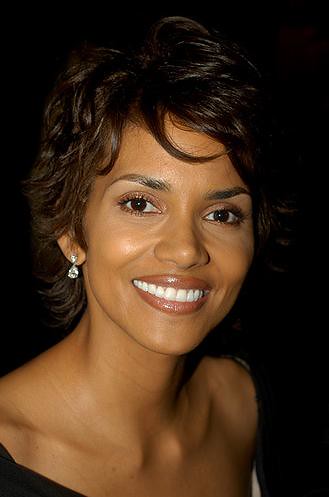
7. **Halle Berry in Catwoman (2004)**Halle Berry is unequivocally a very talented actress, an Oscar winner whose capabilities are beyond dispute. Yet, her lead role in the 2004 superhero film “Catwoman” serves as a stark reminder that even immense talent will only carry an actor so far when the material, direction, and overall vision are fundamentally flawed. Her performance became central to the film’s widespread critical derision.
In “Catwoman,” Berry’s interpretation of the title super heroine contributed significantly to setting the movie’s tone at an almost “incomprehensible” level. Her portrayal swung wildly, ranging from cartoonishly meek to needlessly ual, and occasionally veering into the just plain bizarre – a sentiment famously underscored by the rhetorical question, “What even is that basketball scene?!” This inconsistency left audiences bewildered and disengaged.
While there was undeniably “plenty to criticize about ‘Catwoman’” from its convoluted plot to its questionable visual effects, Berry found herself at the forefront of the backlash. Her performance, meant to anchor the film, instead became a focal point for much of its perceived awfulness, a stark contrast to her celebrated dramatic work in other projects that had earned her critical acclaim.
Despite the professional setback and the film’s status as a critical and commercial bomb, Berry showed remarkable grace and sportsmanship. The context highlights this admirable trait, noting that “At least she was a good sport and accepted her Razzie in person.” This gesture, in itself, became a memorable moment, demonstrating a refreshing humility even in the face of such a widely panned cinematic endeavor.
Read more about: Hollywood’s Infamous Landmines: 14 Films That Absolutely Decimated A-List Careers
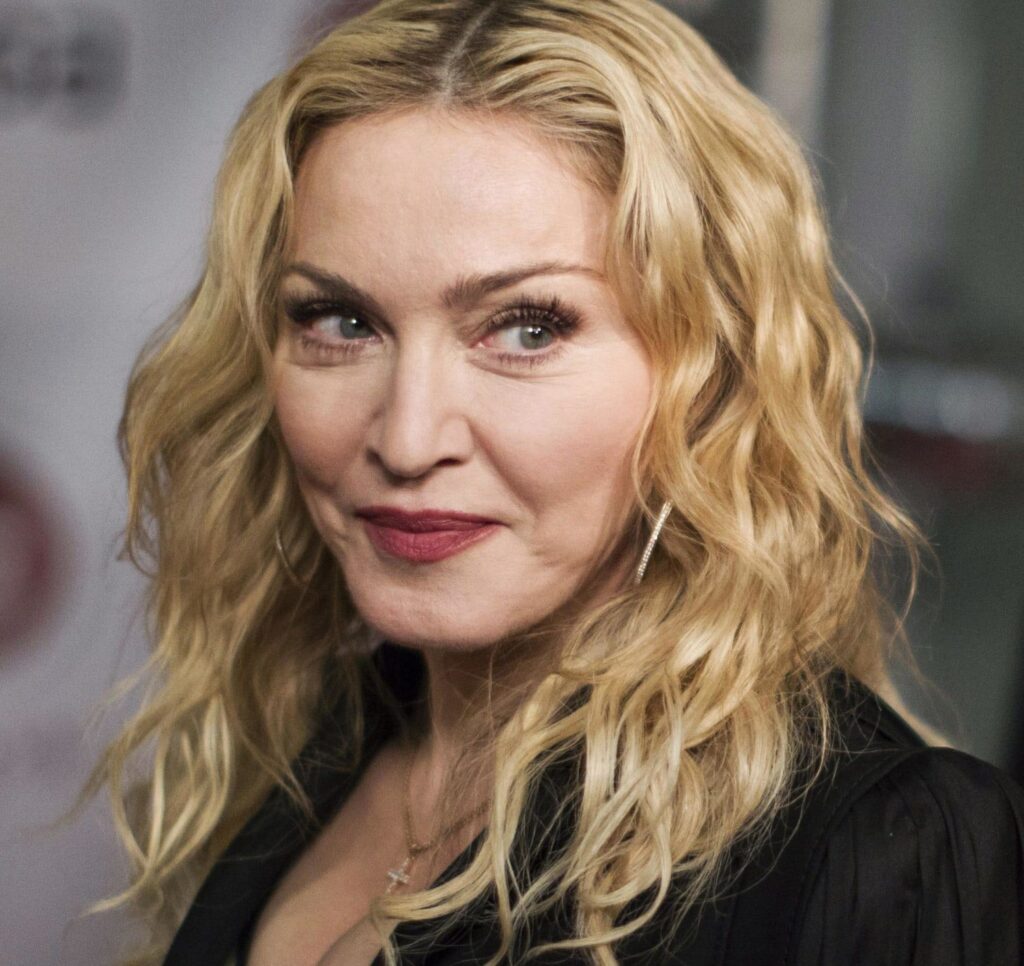
8. **Madonna in Swept Away (2002)**Madonna’s journey through the acting world has been nothing short of a rollercoaster, demonstrating extremes of critical reception. While she undeniably showcased her formidable talent with a Golden Globe-winning performance as Eva Peron in *Evita*, her career is also punctuated by a staggering sixteen Golden Raspberry Award nominations, a testament to her less celebrated cinematic endeavors. This dichotomy firmly positions her as an actor capable of both brilliant triumphs and equally spectacular misfires.
Her role in *Swept Away*, a high-profile collaboration with her then-husband, director Guy Ritchie, firmly falls into the latter category. This 2002 remake was already burdened by the legacy of a critically acclaimed 1974 original, creating immense pressure. Compounding this challenge, Madonna’s character, a spoiled, unlikeable rich girl, didn’t exactly endear herself to audiences, setting a difficult foundation for any performance.
Indeed, the context for *Swept Away* was rife with obstacles, from the shadow of the original to the inherently unsympathetic character. Despite these factors, her portrayal in the film, which earned her the Razzie for Worst Actress and a shared Worst Screen Couple award with Adriano Giannini, is widely regarded as her career’s absolute nadir. It serves as a stark reminder that even a powerhouse like Madonna isn’t immune to delivering what is arguably her worst on-screen performance.
Read more about: Beyond the Headlines: An In-Depth Look at Madonna’s Iconic Journey Through Music, Film, and Cultural Evolution

9. **Dakota Johnson & Jamie Dornan in Fifty Shades franchise (2015-18)**Rarely does a single entry on a list of poor performances encompass two lead actors, but the *Fifty Shades* franchise demands it. Dakota Johnson and Jamie Dornan, the central figures across all three film adaptations, are inextricably linked to a series that, despite its massive box office success—raking in hundreds of millions—was met with scathing critical reviews. Their portrayals became a focal point for much of the franchise’s perceived shortcomings.
A recurring criticism leveled against the duo was their conspicuous lack of chemistry, a fundamental flaw in a romance-driven narrative. While it’s certainly true that the actors were working with less-than-stellar source material—novels famously spun off from *Twilight* fan fiction—this hardly absolves them entirely. Hollywood often takes liberties to improve dialogue and character development, yet the films largely adhered to the problematic foundations.
Christian Grey, as portrayed by Dornan, often came across as a “total creeper,” failing to generate the complex allure intended by the character. Anastasia Steele, brought to life by Johnson, was frequently criticized for being “one-note,” lacking depth and nuance. It’s hardly surprising, then, that both Dornan and Johnson were ‘honored’ with Worst Actor and Worst Actress Razzies for their roles, solidifying their place in the annals of unconvincing on-screen pairings.
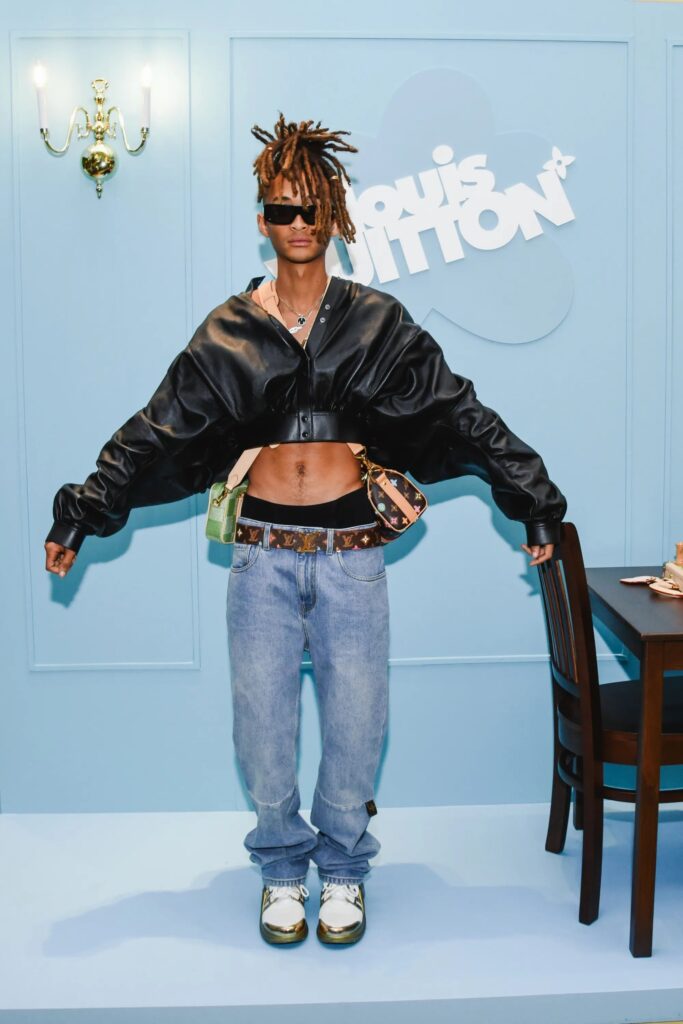
10. **Jaden Smith in After Earth (2013)**Nepotism, a recurring theme in Hollywood, made another appearance with *After Earth*, a film where Jaden Smith starred alongside his real-life father, Will Smith. The premise sees Jaden’s character, Kitai, stranded on a post-apocalyptic Earth with his father after a spaceship crash. This setup, however, proved to be an unfortunate showcase for Jaden’s nascent acting abilities, which struggled under the weight of a lead role.
Jaden, unfortunately, lacked the formidable charisma that has defined his father’s illustrious career. Tasked with carrying much of the film’s emotional and narrative burden, his performance was met with significant criticism, described as “stilted, overacted, [and] unnatural.” Following him as the film’s central protagonist became a trying experience for many viewers, highlighting a disparity in on-screen presence.
While Will Smith’s own performance in the film was uncharacteristically wooden, creating a jarring contrast that certainly didn’t help, Jaden’s acting was singled out for its specific shortcomings. Despite having worked with his son in other projects, the father-son chemistry here was notably “nonexistent.” This made *After Earth* a prominent example of how even family connections can’t always compensate for a performance that simply fails to resonate.
Read more about: Don’t Watch These 15 Movies: A List of Notorious Film Flops
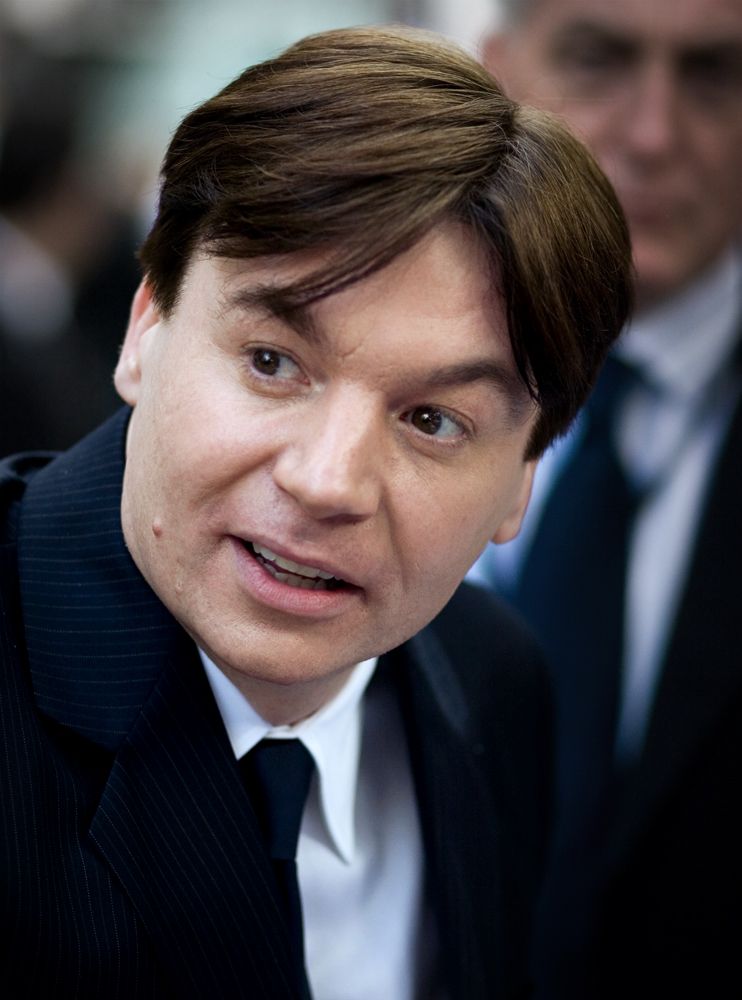
11. **Mike Myers in The Love Guru (2008)**Some performances unfortunately become notorious career killers, and Mike Myers’ turn in *The Love Guru* stands as a prime exhibit. After achieving global adoration with his iconic Austin Powers character, Myers’ portrayal of Pitka, the world’s self-proclaimed #2 guru, received an overwhelmingly negative reception—the exact opposite of the widespread love his previous roles enjoyed.
Several factors converged to make this film, and Myers’ performance within it, a critical disaster. The humor was often cringeworthy, particularly the stereotype-heavy portrayal of Hinduism, which struck many as insensitive rather than comedic. Additionally, the relentless barrage of little person jokes directed at Verne Troyer’s character consistently fell flat, failing to elicit any genuine laughs.
Adding to the film’s woes were the numerous distracting asides that felt disjointed and never quite landed, further undermining any comedic potential. The context notes that it’s difficult to fully quantify how deeply audiences disliked Myers’ performance, but its commercial and critical failure had a tangible impact: studios, ever since, have conspicuously not been “knocking each other out of the way to star Myers in a live-action film.” It was a resounding misstep that significantly altered his trajectory in Hollywood.
Read more about: After the Spotlight Fades: 14 Actors Whose Defining Roles Led to Unexpected Career Setbacks
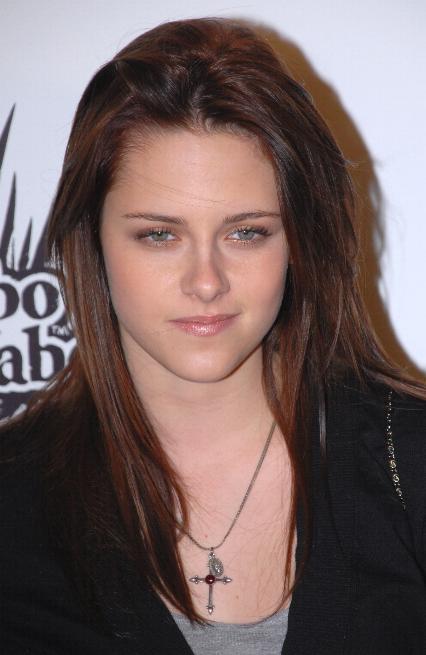
12. **Kristen Stewart in Twilight (2008)**Kristen Stewart’s portrayal of Bella Swan in *Twilight* represents a curious anomaly in the landscape of acting criticism. It was, undoubtedly, a star-making turn in a film that was relatively well-reviewed and launched a franchise that went on to gross over $3 billion worldwide. Stewart even garnered an MTV Best Female Performance Award, seemingly cementing her status as a beloved figure in popular culture.
Despite this initial acclaim and commercial success, a significant contingent of “haters” emerged, scrutinizing her performance intensely. This collective disapproval largely stemmed from the cumulative effect of her characteristic mannerisms across five films: a pouty expression, frequent sighs, incessant eye-fluttering, and lip-biting, combined with a seemingly constant search for inspiration. These quirks, repeated over the series, began to grate on many viewers.
Her specific acting choices in the *Twilight* series led to Razzie nominations for three of the films, underscoring the critical divide. However, it’s crucial to note that since her time as Bella Swan, Stewart has undergone a remarkable artistic transformation, proving herself to be an excellent actress. Her performance in *Clouds of Sils Maria*, for instance, earned her the distinction of being the first American actress to win a César, France’s highest acting honor, demonstrating a significant evolution in her craft.
Read more about: Still Can’t Believe You Watch Them? Dive into 15 Cult Classics Where Bad Acting Equals Legendary Fun.

13. **Taylor Lautner in Abduction (2011)**By 2011, Taylor Lautner had achieved heartthrob status, primarily due to his role as Jacob in the immensely popular *Twilight* films. This newfound fame propelled him into a starring vehicle, *Abduction*, an action-thriller directed by the acclaimed John Singleton. The film featured Lautner as Nathan Harper, a young man grappling with a mysterious past, seemingly poised to cement his leading-man potential.
However, despite *Abduction* proving to be a profitable film at the box office, it conspicuously failed to generate a plethora of big-budget, leading-man opportunities for Lautner in its wake. This lack of follow-up can largely be attributed to the critical reception of his performance, which was widely described as “one-note.” His acting frequently consisted of a rather “vacant-eyed stare,” offering little in the way of emotional range or nuance.
A particularly painful moment highlighted by critics was a scene depicting the death of Nathan’s parents, where Lautner visibly struggled to “wrangle up tears,” demonstrating a clear deficit in dramatic capability. *New York Post* critic Kyle Smith famously, and rather cuttingly, compared Lautner’s acting chops to those of Bert from *Sesame Street*—a comparison that, for many, was difficult to dispute. The film, sadly, became more known for highlighting his acting limitations than his star power.
Read more about: After the Spotlight Fades: 14 Actors Whose Defining Roles Led to Unexpected Career Setbacks

14. **Jennifer Lopez in Gigli (2003)**Jennifer Lopez’s performance in *Gigli* is often filed under the unfortunate category of “collateral damage,” trapped within an “all-time stinker” that topped WatchMojo’s 2013 list of the Worst Movies of All Time. While it might not have been Lopez’s finest hour, her contribution was undeniably a significant factor in the film’s widespread critical drubbing, making it impossible to separate her acting from the movie’s overall failure.
Lopez’s portrayal in the film was frequently characterized by a distinct lack of engagement, as if she were “sleepwalk[ing] through the film.” Critics noted her “very little acting range,” suggesting a performance that lacked the vibrant energy and depth expected from a lead. This subdued and uninspired turn earned her the unenviable Razzie for Worst Actress, a common ‘award’ for those featured on this list.
Perhaps the most infamous, and squirm-inducing, aspect of her performance came during a seduction scene that delivered a line so profoundly bad, it entered cinematic infamy: “It’s Turkey Time… gobble, gobble.” This single line, more than any other, epitomized the film’s overall misguided tone and Lopez’s unfortunate role in its unforgettable terribleness. It was a moment that, for many, may have even ruined Thanksgiving.
Read more about: Hold Up! Don’t Even Think About Watching These 12 Seriously Cheesy Romance Flops That Critics Absolutely Panned
Our journey through these memorable, albeit often disastrous, performances by otherwise celebrated actors truly underscores the inherent unpredictability of the film industry. Even the most prodigious talents, whether grappling with challenging material, questionable direction, or simply a momentary lapse in judgment, can deliver a turn that falls short of expectations. Yet, what truly sets these individuals apart is not just their occasional missteps, but their enduring legacy as performers who, for the most part, have captivated and moved audiences throughout their careers. These are the rare instances where even a ‘bad’ performance is still, in its own peculiar way, worth examining for the lessons it offers about the delicate alchemy of cinema.


